Is Peppermint oil a pest repellent?
Yes! Peppermint oil and its active component, menthol, were first registered with the EPA as pesticides in the United States in 1967.
Since then, peppermint oil has been used as a natural and effective alternative to synthetic pesticides for controlling a wide range of pests in various settings, including homes, gardens, and agricultural fields.
Peppermint Oil is effective against: Mosquitoes, Ants, Spiders, Ticks, Fleas, Beetles, Cockroaches, Mice and rats
How does Peppermint oil work to repel bugs?
Peppermint essential oil contains several compounds, including menthol, menthone, and limonene, which are known to have insecticidal properties.
Menthol, in particular, is believed to be the most effective compound in peppermint oil for repelling insects and pests. It has a strong, minty aroma that is overwhelming for many insects, making the environment less attractive to them. Additionally, menthol can interfere with the nervous systems of some insects, which can cause paralysis or even death.
Menthone and limonene are two other compounds found in peppermint essential oil that are believed to have insecticidal properties. Menthone has been shown to be effective against several species of mosquitoes, while limonene has been shown to repel fleas, ticks, and other pests.
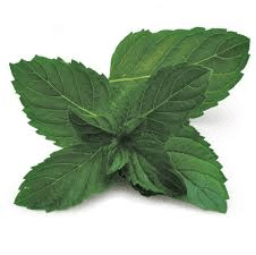
What is Peppermint Oil?
Peppermint oil is an essential oil that is derived from the leaves of the peppermint plant (Mentha piperita).
Peppermint plant is a hybrid plant that is a cross between watermint and spearmint. It is a fast-growing perennial plant that is native to Europe and Asia but is now widely cultivated in many parts of the world, including North America.
Peppermint is a versatile and valuable plant that can be grown for its culinary, medicinal, and insect-repelling properties, as well as for its essential oil content.
What does Peppermint oil smell like?
Peppermint oil has a fresh, minty aroma and is commonly used for its cooling, soothing, and invigorating properties.

What are the active compounds in Peppermint Oil?
Menthol: is responsible for minty aroma and flavor of peppermint.
Menthone: is a terpene that gives peppermint its distinctive flavor and aroma.
1,8-cineole: also known as eucalyptol, is a terpene.
Limonene: is a terpene
Rosmarinic acid: is a polyphenol that has antioxidant and anti-inflammatory properties.
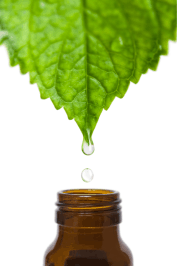
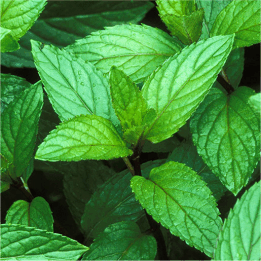
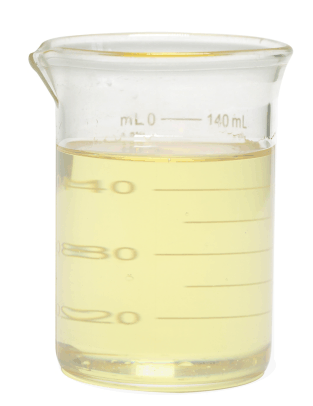
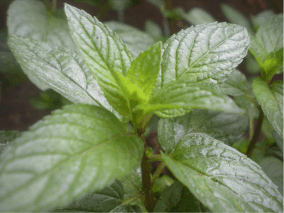
Industrial uses for Peppermint Oil?
Peppermint oil
Industrial Uses- Food flavoring: Peppermint oil is commonly used as a flavoring in candies, gums, and other food products.
- Aromatherapy: Peppermint oil is often used in aromatherapy due to its refreshing and invigorating scent.
- Pharmaceuticals: Peppermint oil is used in pharmaceuticals as an ingredient in various products, such as cold and flu medications, digestive aids, and pain relievers.
- Personal care products: Peppermint oil is often used in personal care products, such as soaps, shampoos, and lotions, due to its refreshing scent and potential skin benefits.
- Insect repellent: Peppermint oil can be used as a natural insect repellent in some applications.
- Cleaning products: Peppermint oil can be used as a natural cleaning agent in some applications.
- Agricultural uses: Peppermint oil can be used in agriculture as a natural pesticide and insect repellent for crops.
Is Peppermint Oil used in Minus Bite Family Bug Spray?
Yes, Peppermint oil is an active ingredient in our all natural family friendly bug spray as well as other highly effective essential oils.
Benefits of Using Peppermint Oil on the Skin at the right concentration
Natural insect repellent: Peppermint oil can help to repel insects, including mosquitoes and flies, when applied to the skin in the right concentration. This can reduce the likelihood of bites and the transmission of insect-borne diseases.
Soothing and cooling: Peppermint oil has a cooling effect on the skin, which can help to soothe and calm irritated or inflamed skin.
Antimicrobial properties: Peppermint oil has antimicrobial properties, which means it can help to fight against bacteria and other microorganisms that can cause skin infections.
Pain relief: Peppermint oil can help to relieve pain when applied topically, particularly in cases of muscle soreness, tension headaches, and migraines.
Improved skin health: Peppermint oil can help to improve skin health by reducing inflammation, fighting against acne-causing bacteria, and promoting healthy skin cell regeneration.
Aromatherapy benefits: In addition to its potential benefits for the skin, peppermint oil can also be used in aromatherapy to help promote relaxation, reduce stress, and improve mental clarity.
Timeline of the Usage of
Peppermint Essential Oil- Ancient times: Peppermint has been used for medicinal purposes since ancient times. The ancient Egyptians, Greeks, and Romans all used peppermint for its therapeutic properties.
- 1700s: Peppermint was introduced to Europe in the 1700s and quickly became popular for its medicinal uses. It was used to treat a variety of ailments, including digestive issues, headaches, and colds.
- 1800s: In the 1800s, peppermint was widely cultivated in the United States, particularly in the state of Michigan. It was used in a variety of products, including teas, candies, and soaps.
- Early 1900s: Peppermint oil was first used in the early 1900s as a flavoring agent in chewing gum. The Wrigley Company was one of the first to use peppermint oil in their products.
- Mid 1900s: Peppermint oil continued to be used in a variety of products, including food, beverages, and personal care products.
- Late 1900s: In the late 1900s, researchers began to explore the potential therapeutic benefits of peppermint oil, including its ability to improve digestion, relieve pain, and reduce stress.
- Present day: Peppermint oil is widely used today in a variety of applications, including aromatherapy, personal care products, and as a natural insecticide and bug repellent. It continues to be a popular flavoring agent in food and beverages, and its therapeutic properties are increasingly being recognized by the scientific community.
Peppermint Oil is a biopesticide
A biopesticide is a type of pesticide derived from natural materials, such as plants, bacteria, fungi, or other organisms, that can control or manage pests, including insects, weeds, and plant diseases.
Biopesticides work through various mechanisms, including interfering with pest mating, disrupting pest feeding or development, or directly killing pests.
Would you like some Minus Bite Bug Spray?
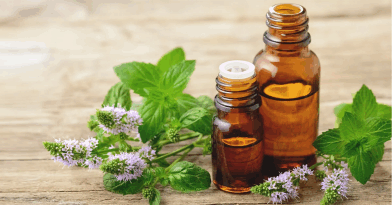
Peppermint oil is considered a biopesticide, and has been registered by the United States Environmental Protection Agency (EPA) as a minimum risk pesticide, which means it is exempt from registration requirements under the Federal Insecticide, Fungicide, and Rodenticide Act (FIFRA). This classification allows citronella oil to be used as a natural insect repellent and pesticide without the need for extensive testing or registration.
More about Peppermint Oil
Peppermint Crunch Balls recipe
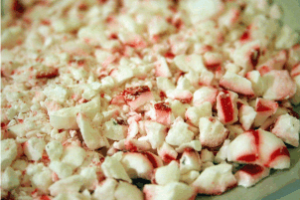
5 Minute Read Published December 01, 2021
Peppermint & Peppermint Oil Profile
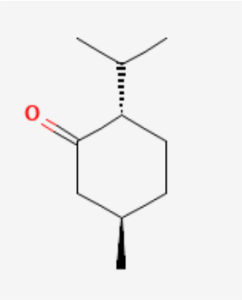
15 Minute Read Published 2005 Jun 1

References:
“Peppermint Oil” – Environmental Protection Agency (EPA) Fact Sheet.
“Insecticidal Properties of Mentha Essential Oils” – American Chemical Society Journal of Agricultural and Food Chemistry.
“Peppermint Oil as a Natural Pesticide” – Agriculture and Natural Resources, University of California.
“Peppermint Oil and Pest Control: An Overview” – Journal of Pest Science.
“Peppermint Oil as an Environmentally Friendly Pesticide for Control of Drosophila suzukii” – Journal of Economic Entomology.
